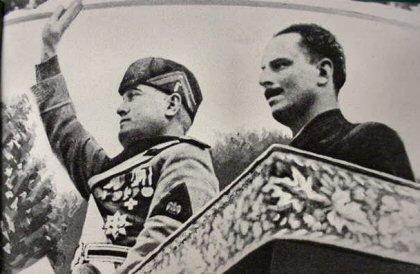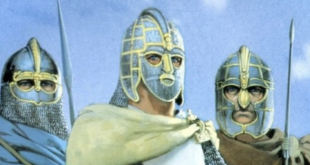Daily Stormer
December 30, 2014
He was definitely the best Britain had to offer.
Imagine living in an age where such men as this existed.
It wasn’t even that long ago.

And yet it might as well have been ancient Rome.
Sir Oswald Ernald Mosley, 6th Baronet /ɒzwɔːld.ˈmoʊzli/ (16 November 1896 – 3 December 1980) was an English politician, known principally as the founder of the British Union of Fascists (BUF). He was a Member of Parliament for Harrow from 1918 to 1924, for Smethwick from 1926 to 1931 and Chancellor of the Duchy of Lancaster in the Labour Government of 1929–31, a position he resigned due to his disagreement with the Labour Government’s unemployment policies. He then formed the New Party which merged with the BUF (which included the Blackshirts) in 1932.
Although relatively well funded, Mosley often overemphasized intellectual fine points that appealed to few voters, opposed free trade and associated closely with Nazi Germany. Mosley was interned in 1940 and the BUF was proscribed. He was released in 1943, and politically disillusioned in Britain he moved abroad in 1951, spending most of the remainder of his life in France.
…
After his failure in 1931 Mosley went on a study tour of the “new movements” of Italy’s Benito Mussolini and other fascists, and returned convinced that it was the way forward for Britain. He was determined to unite the existing fascist movements and created the British Union of Fascists (BUF) in 1932. The BUF was protectionist, strongly anti-communist, and nationalistic to the point of advocating authoritarianism. It claimed membership as high as 50,000, and had the Daily Mail and Daily Mirror among its earliest (though short-lived) supporters. The Mirror piece was a guest article by Daily Mail owner Viscount Rothermere and an apparent one-off; despite these briefly warm words for the BUF, the paper was so vitriolic in its condemnation of European fascism that Nazi Germany added the paper’s directors to a hit-list in the event of a successful Operation Sea Lion. The Mail continued to support the BUF until the Olympia rally in June 1934.
John Gunther described Mosley in 1936 as “strikingly handsome … probably the best orator in England. His personal magnetism is very great”. Among Mosley’s supporters at this time were the novelist Henry Williamson, military theorist J. F. C. Fuller and the future “Lord Haw Haw”, William Joyce.
Mosley had found problems with disruption of New Party meetings, and instituted a corps of black-uniformed paramilitary stewards, nicknamed blackshirts. The party was frequently involved in violent confrontations, particularly with Communist and Jewish groups and especially in London. At a large Mosley rally at Olympia on 7 June 1934 mass brawling broke out when hecklers were removed by Blackshirts, resulting in bad publicity. This and the Night of the Long Knives in Germany led to the loss of most of the BUF’s mass support. The party was unable to fight the 1935 general election.
In October 1936 Mosley and the BUF attempted to march through an area with a high proportion of Jewish residents, and violence resulted between local and nationally organised protesters trying to block the march and police trying to force it through, since called the Battle of Cable Street. At length Sir Philip Game the Police Commissioner disallowed the march from going ahead and the BUF abandoned it.
Mosley continued to organise marches policed by the Blackshirts, and the government was sufficiently concerned to pass the Public Order Act 1936, which, amongst other things, banned political uniforms and quasi-military style organisations and came into effect on 1 January 1937. In the London County Council elections in 1937 the BUF stood in three wards in East London (some former New Party seats), its strongest areas, polling up to a quarter of the vote and Mosley made most of the Blackshirt employees redundant, some of whom then defected from the party with William Joyce. As the European situation moved towards war, the BUF began to nominate Parliamentary by-election candidates and launched campaigns on the theme of Mind Britain’s Business. After the outbreak of war he led the campaign for a negotiated peace, a stance popularly acceptable but after the invasion of Norway and the commencement of aerial bombardment (see The Blitz) overall public opinion of him turned to hostility. In mid May 1940 Mosley was nearly wounded by assault.
 Daily Stormer The Most Censored Publication in History
Daily Stormer The Most Censored Publication in History


